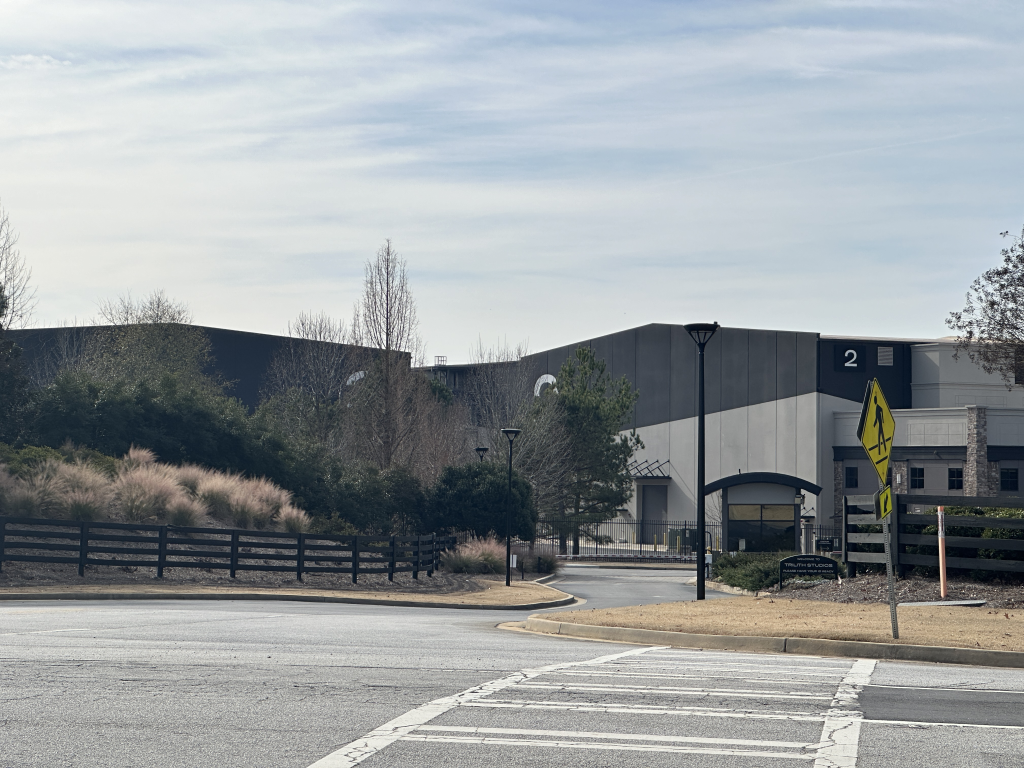
Georgia’s film industry had been unstoppable for over a decade giant-budget blockbusters, regular paychecks, and the nickname “Hollywood of the South.” Today, with Marvel Studios relocating the majority of its future productions to the UK, many crew members have blank calendars and tough decisions ahead. But industry experts and economic leaders insist it’s not the end of Georgia’s tale it’s a time to change, diversify, and gear up for the next tide.

1. The Marvel Move and Its Ripple Effect
Marvel’s decision to shoot titles such as The Fantastic Four: First Steps, two new Avengers films, and the next Spider-Man in the UK is a kick to Georgia’s production industry. Increasing costs in the state have tipped the scales in favor of foreign locations, where employees are paid lower rates and studios don’t have to shell out for health insurance. The consequence? A almost 50% reduction in production expenditure in the last three years, as only 245 productions shot in the period to June 2024 from 412 in 2022. For laborers such as script supervisor Janine Gosselin, who previously made $200,000 a year working on Marvel productions, it has come down to dipping into retirement savings to survive.

2. The Global Incentive Game
This is a perennial trend in movie making: studios pursue the best combination of tax breaks and wages. Georgia’s 30% transferable tax credit 20% base and 10% for displaying the “Made in Georgia” logo is still one of the most generous in the country, but other states are now playing catch-up. The UK has added a 40% business rates relief for film studios and increased tax relief for VFX work, while Canada, Australia, and New Zealand continue to entice production with enticing packages. As Chrissie Merrill, State Tax Incentives founder, says: “Hollywood isn’t coming to Georgia for its weather, it’s coming for the tax savings.”

3. Why Costs Are Rising in Georgia
Labor costs are the largest contributing factor pushing studios out, Georgia Film Office Director Lee Thomas says. Post-pandemic pay hikes, new union agreements, and slower tax credit reimbursement processing have pushed other markets into stronger appeal. Mix in the effects of the 2023 writers’ and actors’ strikes, along with corporate mergers that cut production budgets to shreds, and the slowdown is easier to see.

4. The Human Side of the Downturn
The slowdown is more than just numbers it’s people’s livelihoods. Grip John Grubb refers to his house as the “house ‘Avengers’ purchased,” after years of consistent Marvel assignments. Now, like many others, he’s seeing previously busy studios like Trilith stand largely vacant. Crew members have come up with a darkly witty take on the state’s iconic end-credits line: “Unemployed in Georgia.”

5. Reshaping Careers for a Shifted Industry
Some are shifting gears. Gosselin is becoming an intimacy coordinator to diversify her career opportunities. Talent agents such as Rick Estimond are urging performers to consider independent films, limited series, and made-for-TV films. “Actors are now considering roles they previously were overlooking,” Estimond remarks. Production companies such as Crazy Legs are financing projects in-house to remain “tax-incentive-proof” and less exposed to location changes.

6. The Push for Diversification
Business leaders envision opportunity in expanding Georgia’s entertainment economy. Shadowbox Studios, for example, is hosting events such as “The Creator’s Toolbox” that investigate uses for soundstages other than film i.e., e-sports tournaments, live music rehearsals, and game production. “Film is a monetization lane,” says Georgia Entertainment CEO Randy Davidson. “We adore film, but there are other monetizations.”

7. Infrastructure and Local Strengths
In spite of the slowdown, Georgia’s infrastructure is unrivaled outside the state of California. Stage space has grown from 45,000 square feet in 2010 to over 4.5 million in 2024. New facilities such as Assembly Atlanta and BlueStar Studios are opening, and post-production abilities are expanding with companies such as Whiskytree opening in Alpharetta. The Georgia Film Academy continues to educate a deep crew base, waiting for when production picks up again.

8. Indications of a Rebound to Come
The lull is transitory, according to many. Trilith CEO Frank Patterson foresees a “new normal” by 2027. Georgia’s tax credit holds firm, and diverse locations, qualified workforce, and assistance services keep it in contention for projects of the future. As Davidson puts it, “rally locally and recruit globally.”

9. Real-World Strategies for Industry Professionals Now
For crew members riding out this time, career counselors suggest crossing training, networking outside Georgia, and remaining plugged into production databases such as Georgia Reel Crew™. Side projects whether commercials, independent films, or digital content can fill income gaps while sharpening skills. As Jason Lockhart of Atlanta Models & Talent observes, “Atlanta’s ‘thrivers’ are making decisions with creativity and longevity in mind.”
Though Marvel’s departure hurts, Georgia’s film industry has ridden out changes previously. With its infrastructure, talent base, and desire to evolve, the state still possesses the resources to write its next chapter.


